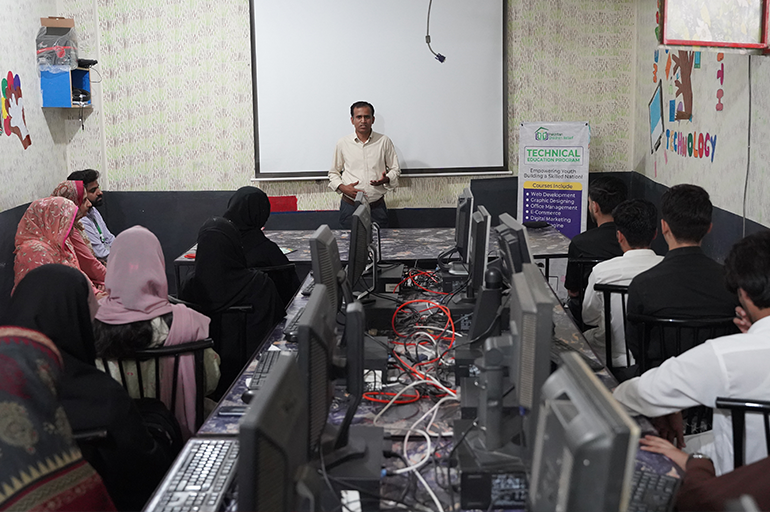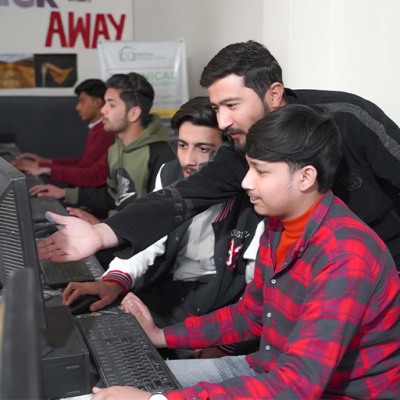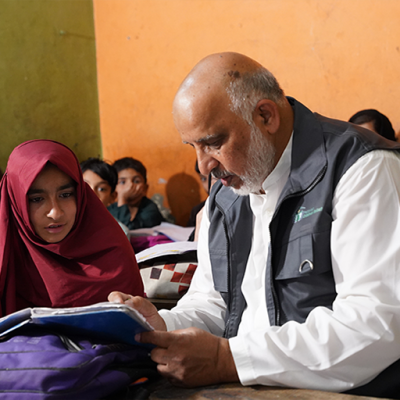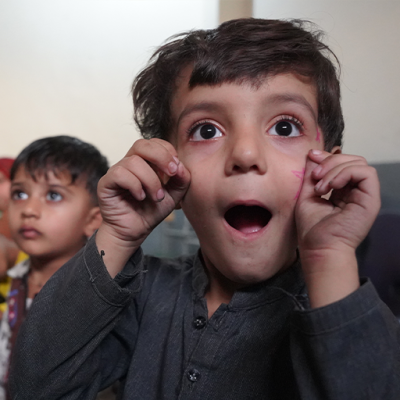Poverty in Pakistan affects millions, limiting access to resources and opportunities. Families, communities, and the nation’s progress are all impacted. One of the strongest solutions lies in skill development programs in Pakistan, which give people practical tools to improve their lives.
Traditional education often fails to prepare youth for today’s job market. Many leave school without the abilities employers need, leading to unemployment. That’s where technical education in Pakistan and vocational training in Pakistan make a difference. These initiatives, including the Pakistan Children Relief technical program, focus on digital skills for underprivileged youth and create real pathways to youth empowerment through education.
By equipping individuals with practical skills, these programs help break the cycle of poverty and build brighter futures.
The Landscape of Poverty in Pakistan: A Foundation for Understanding
Understanding poverty’s current state in Pakistan helps us see the big impact of skill training. It sets the stage for why these programs are so important.
Socioeconomic Indicators of Poverty
Poverty rates in Pakistan affect a large part of the population. Reports often show a significant portion of people living below the national poverty line. Income differences are clear, with wealth concentrated among a few. Youth unemployment rates, in particular, remain a pressing concern across many regions. These numbers paint a clear picture of the economic hurdles many Pakistanis face.
The Vicious Cycle: Education, Employment, and Economic Stagnation
A lack of valuable skills often keeps families trapped in poverty for generations. When people don’t get good education or job training, their options shrink. This means they often end up in low-paying jobs that offer no chance for growth. Imagine a young person from a poor background; they often cannot access the training needed to earn a better living. This cycle repeats, making it hard to escape financial struggles.
Skill Development as an Empowerment Tool
Skill development programs give people the tools they need to succeed. They equip individuals with abilities to find better work and improve their way of life.
Bridging the Skills Gap: Demand-Driven Training
Effective skill programs connect learning directly to what industries need. They make sure students are ready for jobs right after finishing their course. Building partnerships with businesses helps shape these courses. For example, a program might work with the IT sector to train people in coding or digital marketing. This ensures graduates get high-demand jobs. Always research the most sought-after skills in your area before picking a program.
Technical and Vocational Education and Training (TVET) Initiatives
Pakistan offers many TVET programs. These range from quick courses to longer vocational diplomas. Government groups like the National Vocational and Technical Training Commission (NAVTTC) lead many such efforts. Many non-governmental groups also run successful training centers. A NAVTTC official once said, “TVET is vital for creating a skilled workforce and boosting our economy.” These programs teach trades like electrical work, plumbing, and auto repair.
Entrepreneurship and Self-Employment Pathways
Skill training can also spark an entrepreneurial spirit. It allows people to start their own businesses. This creates jobs not only for themselves but also for others. Think of someone who learns tailoring and then opens a small clothing shop. Or a person trained in making handicrafts who now sells their unique items. If you dream of starting your own business, look into local microfinance groups or business incubators for support.
Impact Stories: Real-World Transformations
These stories show how skill development programs truly change lives. They offer proof of tangible results.
From Unemployment to Employed Professionals
Many individuals find stable jobs after gaining new skills. Take Aisha, a young woman from Lahore. She learned digital marketing through a local program. Now, she works as a successful freelancer, creating online content for clients both home and abroad. Her new skills let her support her entire family. She changed her own future.
Empowering Women Through Skill Acquisition
Programs designed for women address common barriers to employment. They foster financial independence. Consider the women in a village near Multan. A program taught them how to sew and make garments. Now, many work from their homes, contributing to their household income. They gain respect and feel more secure. An expert from a women’s empowerment group noted, “Giving women skills is perhaps the fastest way to lift entire families out of poverty.”
Uplifting Rural Communities
Skill development programs are reaching far-off rural areas too. They offer real options beyond traditional farm work. In a remote area of Balochistan, a project trained young people in basic mechanics and solar panel setup. This created new local job opportunities. People now fix broken equipment or install solar panels, bringing modern services to their communities.
Challenges and Opportunities in Skill Development
Skill initiatives in Pakistan face hurdles. Yet, there are clear ways to grow and improve these vital efforts.
Overcoming Infrastructure and Resource Limitations
Many training centers lack modern facilities and up-to-date equipment. Some areas, especially rural ones, struggle with having enough qualified trainers. Reports show a clear difference in training quality between city and country. This gap can hold back students and limit how much they learn.
The Role of Technology and Digital Literacy
Online learning can reach more people, especially in remote regions. Digital skills training opens up many new job prospects. Programs should include digital tools and make sure students become digitally savvy. Teaching basic computer use alongside a trade makes graduates more valuable.
Policy and Funding Considerations
Strong government rules and enough money are key for lasting skill growth. Good public and private partnerships also help. An expert once wrote in a policy paper, “More investment in vocational training leads to a stronger national workforce.” We need consistent support to make these programs last.
The Path Forward: Scaling Up and Sustaining Impact
We must build on current successes to make skill development programs even more effective.
Expanding Reach and Accessibility
To help more people, we need to make successful programs bigger. This includes reaching those in far-flung or overlooked communities. Mobile training units could travel to different villages. Partnerships with local community centers would also help bring training closer to people’s homes.
Continuous Curriculum Modernization
Training courses must always stay current. We need to review them often to keep up with new technology and industry needs. Program designers should listen to feedback from businesses and past students. This keeps the skills taught relevant and in demand.
Measuring and Evaluating Program Effectiveness
It is important to track what happens after training. We need good systems to check program results. We should look at things like how many graduates find jobs, how much their wages increase, and how many start businesses. This shows where programs work best and where they can improve.
Conclusion
Skill development programs are transforming the fight against poverty in Pakistan. They empower people, create economic opportunities, and prevent hardship from passing down through generations. These efforts are building brighter futures for countless individuals.
It takes everyone like government, private businesses, aid groups, and individuals to make a lasting difference. Among the organizations leading this mission, Pakistan Children Relief stands out for its commitment to providing vocational training in Pakistan and digital skills for underprivileged youth. By supporting such initiatives, we can create widespread, positive change and move toward a more prosperous Pakistan.





